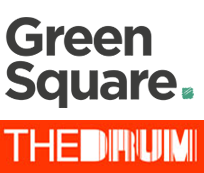10th May 2013
If I were to ask you for a list of the most dynamic advertising markets in the world, chances are that Mauritius would not be among them.
As you might expect for an exclusive holiday destination, it has a thriving tourist industry. But did you know that the island – which has an area of just 787 square miles and a population of less than 1.3 million – is in fact in the process of becoming a regional powerhouse in the financial and communications industries?
For the past five consecutive years, the World Bank has declared it to be the best place to do business in Africa (and the 19th best in the world). You can see why – despite being 1,200 miles from the African coast, Mauritius has a free market economy, an educated and entrepreneurial population, and English as the dominant language.
So I shouldn’t really have been surprised to see, via the Green Square Deal Monitor, that a Mauritian-headquartered company has snapped up a London media agency.The acquirer is Asia Today Ltd (ATL) a holding company that is headquartered in Port Louis, the capital of Mauritius. It specialises in content distribution to various South Asian communities via local agents. It is itself a subsidiary of the global company Zee Entertainment Services, a major broadcaster based in Mumbai and which broadcasts to almost 700 million viewers via 15 TV channels. It also makes movies for the Asian market.
At the very end of last month, ATL announced that it was buying a significant stake – worth around £3m – in MirriAd, a London agency that specialises in digital product placement. Product placement, as a form of marketing is relatively small in the UK – possibly due to the UK’s very strict regulatory regime and the way our broadcasting industry is structured – but it is big business in the States and has the potential to be huge in the relatively under-regulated Asian markets.
MirriAd is privately owned by its founders and various institutional and angel investors. Launched in 2008 by its current CEO Mark Popkiewicz (previously a director of BBC Ventures) MirriAd aims “to revolutionise product placement for the digital era”.
It has developed an end-to-end platform able to digitally integrate brands into professionally produced video content – on any scale, from a local level through to an international one.
Product placement has historically been realised at the point of production. If you wanted to place a bottle of Coke in a scene, you had to shoot it. But MirriAd means brands can be integrated into programming remotely and independently of production schedules. Thus, the MirriAd platform offers brands the opportunity to target huge audiences across many countries with ease and across a wide variety of content locally, regionally and globally. A seemingly compelling and scalable product offer.
If that weren’t enough, MirriAd’s platform also analyses content, creates inventory and delivers campaigns together with audience engagement and supporting analytics. That will be music to many multinational brands’ ears.
MirriAd’s digital integrations – created in London and Mumbai, Asia’s equivalent of Hollywood – appear to have a good reputation for being extensively researched and, it is claimed, for driving up the quality of production values in the regions in which they are used. It works with brands, advertisers, broadcasters and content producers and has the bluest of blue-chip client lists – Nestle, Olay, Samsung, Honda, Tilda, Coca-Cola, Unilever, Pizza Hut and Pedigree Petfoods.
If this strategic investment is good news for MirriAd, it’s potentially even better for ATL and its parent, Zee. MirriAd’s systems can now be deployed across India and other markets in the Asia region on broadcast, cable and satellite; Zee has 400,000 hours of programming available in six languages across the world and has a reach of 670 million viewers in the 169 countries to which it broadcasts.
The investment may have been prompted by the success of campaigns by Zee TV in the UK, which used MirriAd technology to integrate UK brands into the Indian-produced popular daily soap Pavitra Rishta. (Zee in the UK is a satellite channel and so is therefore not as tightly regulated as terrestrial broadcasters like Channel 4 and ITV). But of course, ATL would have been really excited by the potential for growth in the future, especially in the vast Indian market. And of course, there is the option to create a non-subscription, non licence-fee-funded, advertising-free TV channel. This would give consumers an uninterrupted viewing experience and gives brands the opportunity to exclusively “own” large chunks of airtime.
Some twenty years hence, if MirriAd manages to attain global scale, we may look back on this deal as one of the most significant, not to mention shrewd, deals of 2013. And who knows – it may mark the beginning of Mauritius’ rise as a global marcomms and entertainment centre to rival London, New York, Mumbai, Hong Kong or Los Angeles.
Holidaying on the Île Maurice may never be the same again!
